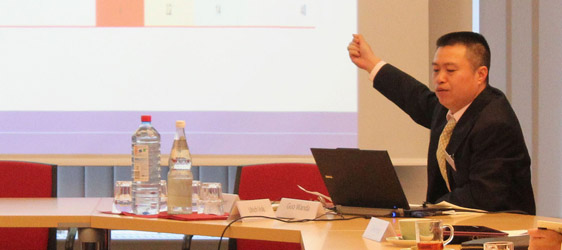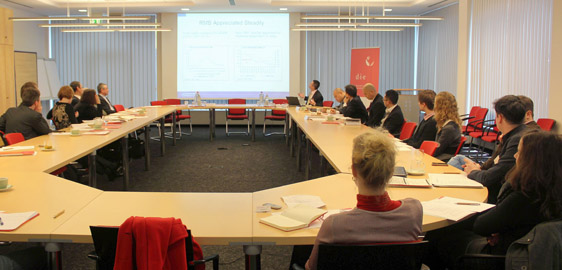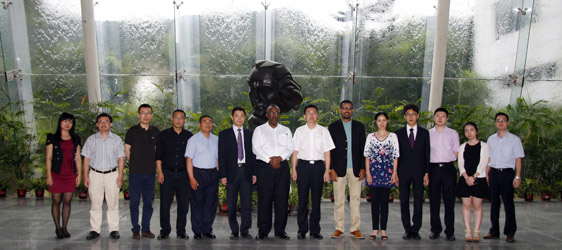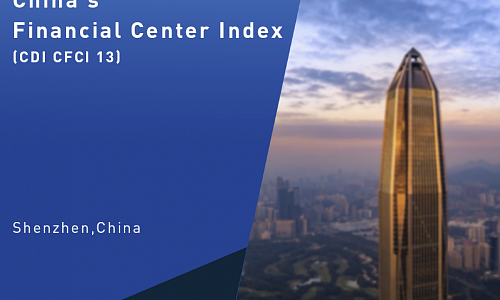
2014 - News
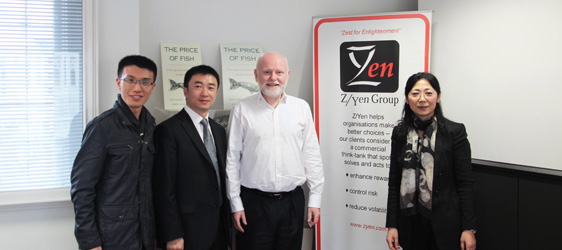
Ms. Carol Feng, director of International Cooperation Department and Mr. Yu Peng, research fellow of Financial Research Centre visited Z/Yen Group which is based in London, UK and was welcomed by associate director Dr. Mark Yeandle on December 18th, 2014.
During the visit, CDI and Z/Yen Group realized the significance of strengthening the connection and communication with each other and agreed to carry out extensive cooperation in the future.
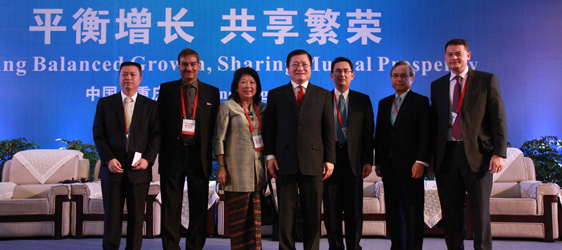
On Dec 4-6, Dr. Guo Wanda, Executive Vice President, and Ms. Carol Feng, Director of International Cooperation Department, attended the 6th World Chinese Economic Forum. Dr. Guo addressed in the first Session: “China’s Role in the World and Regional Economy”, and had a lively interaction with other speakers from Britain, Australia, Thailand, Malaysia, Indonesia and Kuwait. The Forum is themed with “China, ASEAN and the World Economy: China’s New Global Role, Achieving Balanced Growth, Sharing Mutual Prosperity”. It is an annual event organized by the Asian Strategy and Leadership Institute promoting linkages between the East and West and China and Southeast Asia. CDI is one of the supporting organizations of the Forum.

Mr. Stephen Olson, Managing Director of Asia, ESI visited CDI and was welcomed by Vice President Qu Jian, along with Ms Feng Yueqiu, Director of International Cooperation Department. Dr. Qu answered questions towards foreign direct investment (FDI) raised by Mr. Olson one by one. Dr. Qu also analyzed the reasons why FDI made such a great success in China and the challenges of FDI in different phases from various aspects including the history of China’s FDI policies and its evolvement especially after China entered WTO, the preferential policies for foreign investment enterprises, the role of SEZ, etc.

A delegation of 33 students from 4 Swiss colleges including the University of Applied Sciences, Western Switzerland, led by Professor Claudio Boer and Stefan Dingerkus visited CDI. Dr. Guo Wanda, the Executive Vice President of CDI gave a lecture on “Chinese Economy and China’s Special Economic Zone: its Role for the Transformation of China”. The lecture consists of 4 parts: Chinese Economy in the Past, Chinese Economy in the Future, China’s SEZ and Shenzhen’s Role of SEZ for China’s Transformation. Dr. Guo also had an extensive discussion with the students on China’s plan economy, opening-up policy, household registration system (“hukou”), etc.
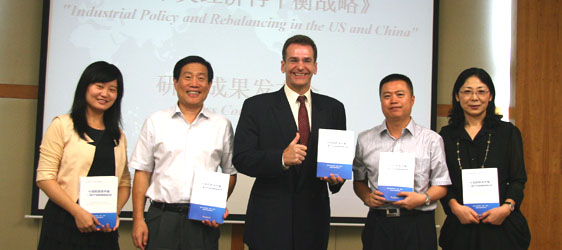
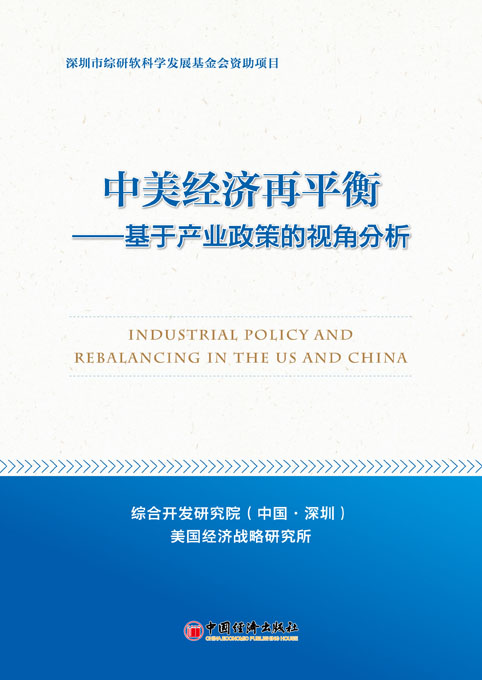 CDI was releasing its first joint research report in cooperation with Economic Strategy Institute (ESI), a Washington DC-based, private, non-profit, non-partisan public policy research organization. The report entitled "Industrial Policy and Rebalancing in the US and China" was released by Mr. Stephen Olson, Managing Director in ESI Asia, and Dr. Guo Wanda, Executive Vice President of CDI. The press conference was hosted by Mr. Tang Huijian, Chairman of Shenzhen Soft Science Development Foundation, which provided the sponsorship for the joint study. Ms. Carol Feng, Director of International Cooperation Department of CDI gave a brief introduction of the background of the project. Journalists from 22 domestic media participated in the press conference.
CDI was releasing its first joint research report in cooperation with Economic Strategy Institute (ESI), a Washington DC-based, private, non-profit, non-partisan public policy research organization. The report entitled "Industrial Policy and Rebalancing in the US and China" was released by Mr. Stephen Olson, Managing Director in ESI Asia, and Dr. Guo Wanda, Executive Vice President of CDI. The press conference was hosted by Mr. Tang Huijian, Chairman of Shenzhen Soft Science Development Foundation, which provided the sponsorship for the joint study. Ms. Carol Feng, Director of International Cooperation Department of CDI gave a brief introduction of the background of the project. Journalists from 22 domestic media participated in the press conference.
Mr. Olson and Mr. Guo elaborate the main structure and viewpoints of the report on the following four aspects: 1) How has the issue of imbalances contributed to the grindingly slow recovery from the Global Financial Crisis, and to what extent is it potentially setting the stage for future economic calamities of equal or greater magnitude? 2) What have been the respective approaches to industrial policy in both countries? 3) How have these industrial policies helped fuel the build-up of dangerous imbalances? 4) What are the practical, “real world” adjustments that both countries need to make to their industrial policies in order to gradually and responsibly begin to reverse the imbalances?
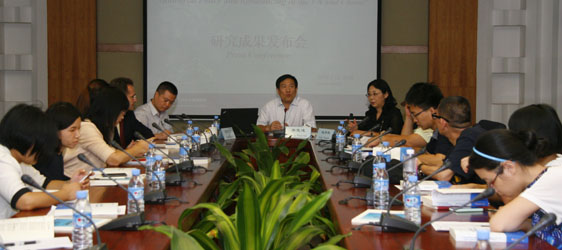
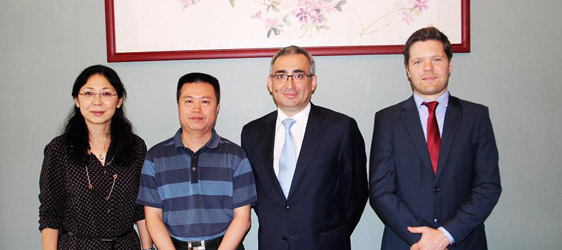
Mr. Dominic Trindade, Australian Consul-general in Guangzhou, paid his first official visit to Shenzhen from June 11th to 12th and had a luncheon with CDI Executive Vice President Guo Wanda and Ms. Carol Feng, Director of International Cooperation Department. The Consul General planned this visit in order to renew and further develop the Australian Consulate’s relationship with the Shenzhen municipality and promote mutual development with CDI.
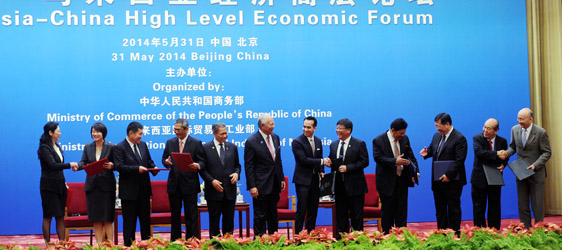
The China-Malaysia High-Level Economic Forum was held at the Great Hall of the People in Beijing, China on to boost bilateral relations into a comprehensive strategic partnership. Datuk Seri Najib Tun Razak, the Malaysian Prime Minister and Datuk Seri Mustapa Mohamed, the International Trade and Industry Minister witnessed the exchange of documents to mark the signing of 11 business-to-business deals, which involves railway, national defense, finance and green resources. On Behalf of China Development Institute, Ms. Carol Feng, Director of International Cooperation Department, signed a MOU with the Asia Strategy and Leadership Institute, on establishing China-ASEAN think tank network.
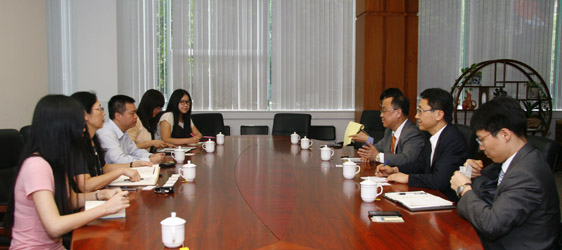
Dr. Sanjin LEE, Director General of Bureau of Technical Barriers to Trade Affairs, Korean Ministry of Trade, Industry & Energyand Mr. Choi Yeonwoo, Commercial Consul of Korean Consulate-General in Guangzhou visited CDI and was welcomed by Executive Vice President Guo Wanda, along with Ms. Carol Feng, Director of International Cooperation Department. Dr. Guo introduced China’s economic status quo and policies to the delegation. He also analyzed the driving forces and development mode of Shenzhen as a successful example among the SEZs. They also had a brief discussion on migrant workers, China’s Central and Western development strategy and industrial clusters, etc.
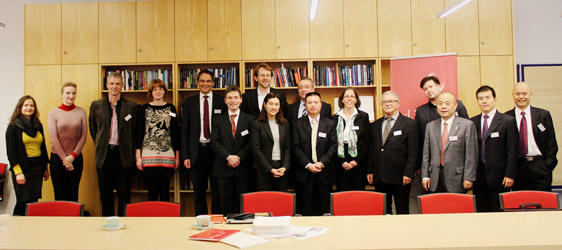
Shenzhen Financial Centre Summit was held in Bonn, Germany and Zurich, Switzerland from January 14th to 16th by China Development Institute (CDI), Shenzhen Stock Exchange and Shenzhen Ping An Bank. The Summit was aimed at showcasing the development achievements of Shenzhen through international exchanges. It covered a wide range of topics including the liberalization of finance sector and Chinese currency, bank reform and capital market, and the possible approach of China’s financial centers, etc. Experts from CDI gave speeches on economic status quo of China and Shenzhen City. Over 100 specialists from research institutes, universities, and financial institutions have participated in the discussions. The Shenzhen Financial Centre Summit is held in different financial centres around the world every year since 2010. Previous sessions have been convened in Paris, Washington, Toronto, Luxembourg, etc.
